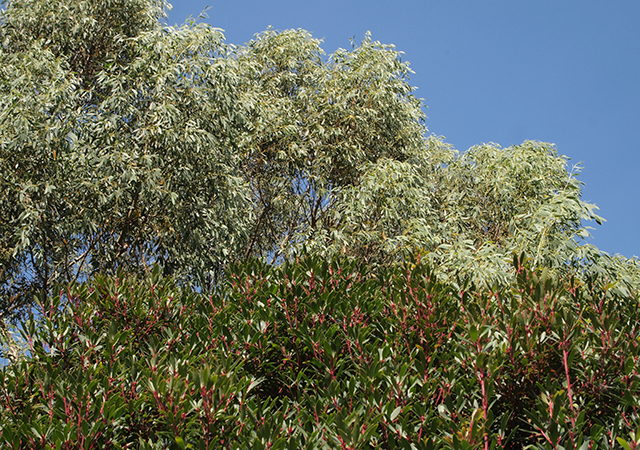
Last year I started to research and write an as yet untitled project. I can't say much about it other than it involves glasshouses. And botany. I'm not being coy about the whole thing, or teasing a big reveal, the idea took a turn and is in redevelopment, such is life. When I have something to share, I will. For now I wanted to tell you about the first place that I visited for the project - Tregothnan in Falmouth, UK.

If you have never been to Cornwall I will start by saying that you really ought to. Some of my favourite spaces in the UK are situated there and it really does have a sense of magic about it. The place seems to have some kind of enchantment placed on it and plants grow as if tended to by plant growing fairies with botanical superpowers. You think I'm exaggerating, I can tell, wait until you see the sneaky pictures I took of aeonium plants on peoples front doorsteps I've got lined up for a future post - St Ives especially has a seriously strong front yard game. The climate is certainly very different to that of ours up in Yorkshire of course. It's the reason it's possible for tea to grow on the Tregothnan estate banks of the River Fal.

"Home to the Boscawen family, Tregothnan is a living and working private Cornish estate, with a rich history dating back to 1334. The name ‘Tregothnan’ literally means ‘The House at the Head of the Valley’ and is still a private family home today" - words lifted directly from the Tregothan site as I couldn't have put it better myself.

I was originally drawn by the claim that the only known surviving original Wardian case* resides at Tregothnan. I got a lot more than I bargained for and quickly forgot the Wardian case entirely as we immersed ourselves in the vast acreage of botanical gardens and camellia sinensis tea plants.

I've visited tea plantations in the hills of Sri Lanka but this was something entirely different. Not only the whole sensory experience (despite being a good tea growing climate, Falmouth lacks that beautiful taste in the air that Sri Lanka has) but the kinds of plants we encountered too with Tregothnan being designated an official ‘safe site’ for the keeping of rare or endangered trees from all over the world.


They grow their own infusion botany if tea isn't your thing which makes their products infinitely attractive to anyone trying to rely less on imported items - I highly recommend trying the Eucalyptus tea (and I forgot to mention that they are the only growers of manuka outside of NZ!).


Tregothnan is a private botanic garden and arboretum and visits are strictly limited and by private appointment usually. However, they are open THIS WEEKEND (21st and 22nd April 2018) for a charity garden opening with tickets priced at £10 each (under 16s go free) and all proceeds going to charity - for more information click here.

Soak up the atmosphere, enjoy exploring the grounds (see if you can find the hunting lodge - I wanted to move in - isn't it lovely?) and take lots of tea home. If you manage to go, tag me @adventuresingreyandgreen in pictures - I'd love to see how the gardens look this time of year.

I want to mention that I'm not in partnership, paid or otherwise with Tregothnan. We were very kindly shown around the gardens but all opinions are my own and the ridiculous horde of tea in our kitchen was paid for by me (Eucalyptus, Lemon Verbena and Cornish Smoked Manuka Earl Grey in case you are wondering).
*The Wardian case resembles a miniature glasshouse of sorts and has been used by plant hunters and botanists since its invention in 1829 to bring plants back on ships - self watering as it holds moisture well and shelters the plants from the salty sea air whilst allowing sunshine to reach the contained plants. It is the very reason that historically we were able to import plants from other parts of the world that would ordinarily arrive dead after a stint in the cargo hold with no sunlight or water. I should add that the one photographed is a replica as they keep the original safely away from the public.



